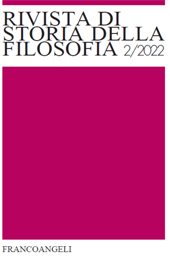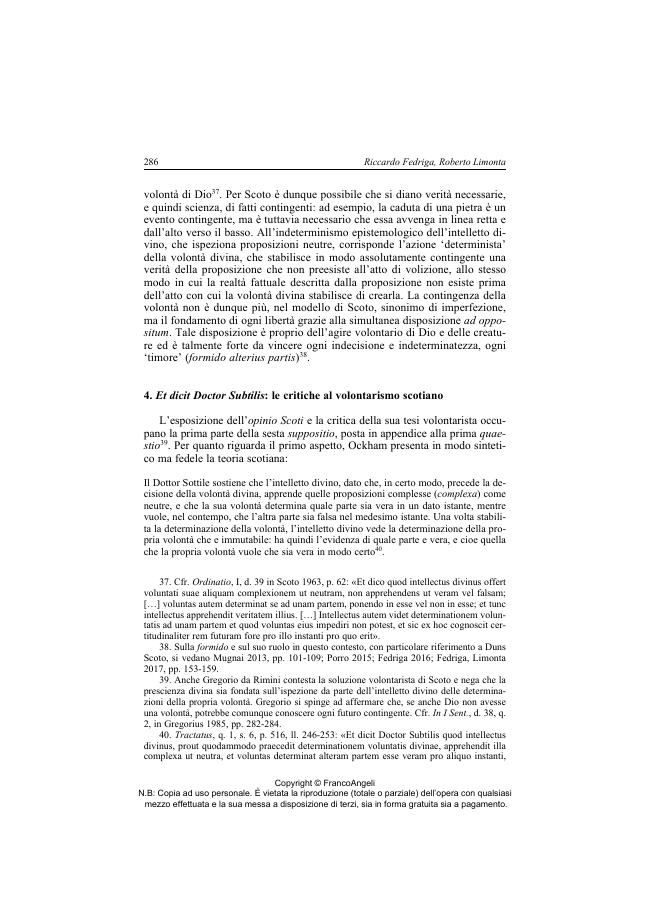Il ritorno del linguaggio : Guglielmo di Ockham e la teoria semantica aristotelica
P. 273-299
Between 1317 and 1323, William of Ockham composed an extended commentary on Aristotle's De interpretatione. However, his reflections on Aristotelian logic and puzzles are not limited to this work. In particular, the author focuses, among other Ockham texts, on the Tractatus de praedestinatione et de praescientia Dei respectu futurorum contingentium (1321-1324). It provides a privileged point of view on the Ockhamian reading of De interpretatione because the latter is used as a philosophical tool to solve the question of the nature - determined or indetermined - and the truth conditions of future tense propositions, a problem historically grounded in the debate on book IX of De interpretatione.
In a criticism of Duns Scotus's position on this topic, Ockham formulates his linguistic solution to save concomitantly divine foreknowledge and human free will: the propositions of divina praescientia are verbally (secundum vocem) simply related to the present but are in fact (secundum rem) related to the future, from which they can be determined as true or false. Thus, the truth-value of the future tense propositions is guaranteed by their being objects of divine foreknowledge, but at the same time those propositions are open to free will's choices since they are still indetermined in the present. [Publisher's text]
Fait partie de
Rivista di storia della filosofia : LXXVII, 2, 2022-
Articles du même numéro (disponibles individuellement)
-
Informations
Code DOI : 10.3280/SF2022-002005
ISSN: 1972-5558
KEYWORDS
- De interpretatione, future contingents, determinism, free will, Duns Scotus, William of Ockham



